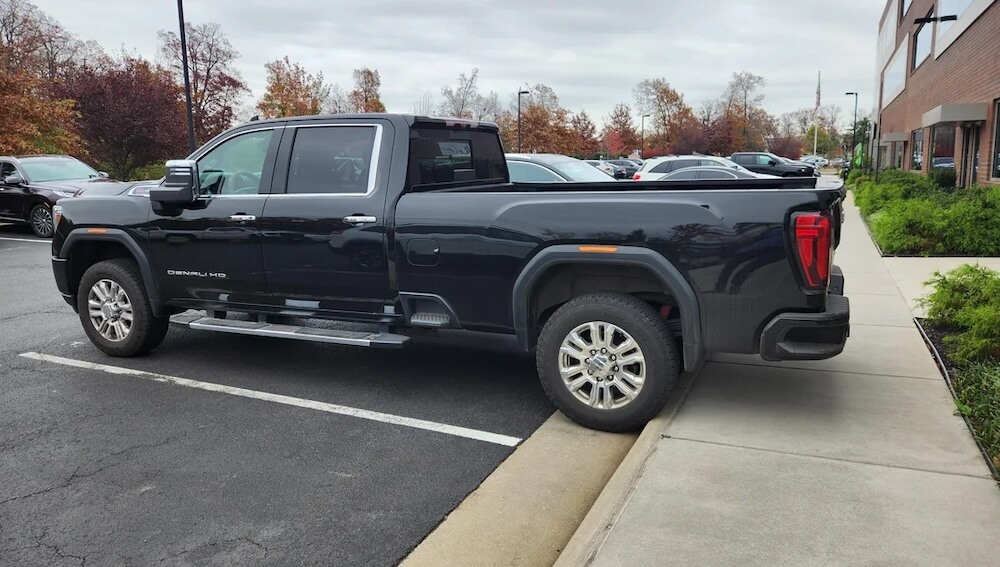A viral post shared to a Reddit community focused on critiquing car-centric urban planning has sparked a heated conversation about the prioritization of cars over people.
A user posted a photo of a large truck with its flatbed extending over the sidewalk, leaving pedestrians with minimal space to pass by. The post brought attention to the lack of commitment to pedestrian-friendly infrastructure, garnering more than 2,400 upvotes and 1,800 comments.

One commenter vented that drivers often excuse blocking sidewalks by saying their cars would otherwise stick out into the parking lot. Adding that these drivers act like people with disabilities "don't exist." They also criticized the growing trend of oversized vehicles, saying these trucks are often bought for appearances, yet their owners still complain about gas prices. "So infuriating."
This isn't just an annoyance, but it's part of a bigger problem. In many areas, cars are the priority, leaving pedestrians, cyclists, and transit users as an afterthought. When sidewalks are blocked, people with mobility challenges, like wheelchair users or parents with strollers, are forced into the street or off of accessible pathways, putting their safety at risk.
Fixing this problem isn't just up to individuals; car companies are also responsible to make the necessary changes. Automakers have influenced cities to build around cars for years, often ignoring the needs of pedestrians and people with disabilities.
But some companies are starting to get it right. For instance, Toyota has collaborated with urban planners on projects like its Woven City initiative, which prioritizes walkability and accessibility by designing spaces that work for everyone, not just drivers.
When car companies rethink how their vehicles take up the spaces around them, they help contribute to human-centric urban plans. Encouraging collaboration is a step toward creating urban areas that prioritize public health and community well-being over traffic congestion and emissions.
Big trucks add another layer to the problem, generating more pollution than smaller cars or greener alternatives. As The Cool Down's guide explains, reducing car dependency cuts pollution and saves people money on gas, insurance, and maintenance.
Redditors had plenty to say about the post, with one commenting, "Where are those ADA lawyers when you need them?"
Another questioned why cities don't use more bollards to protect sidewalks, saying, "You can't never [sic] trust drivers to respect pedestrians."
A third commenter rebutted, "Well, it was either that or inconveniencing other cars."
Creating safer, more walkable cities doesn't mean eliminating cars entirely. Small changes like adding bollards, improving public transit, and designing better pedestrian infrastructure can make a big difference.
Join our free newsletter for good news and useful tips, and don't miss this cool list of easy ways to help yourself while helping the planet.









